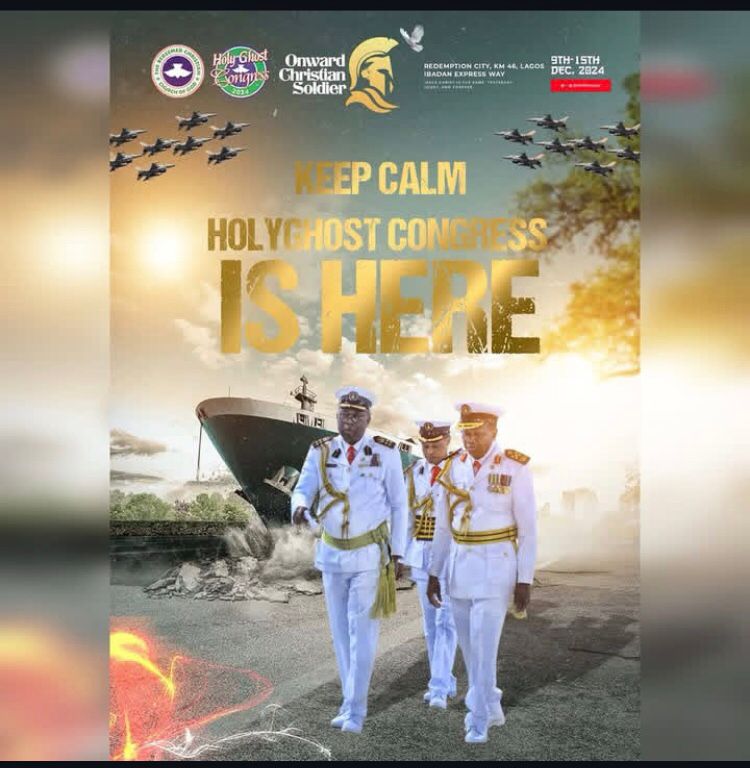Popular rights activist Bisi Alimi has raised concerns about a recent photograph of Pastor Enoch Adeboye, the General Overseer of the Redeemed Christian Church of God (RCCG), in which he was wearing an outfit resembling military camouflage.
The photo, which quickly went viral, has sparked heated debate, with Alimi questioning why the pastor was allowed to wear such attire while ordinary Nigerians face sanction for similar acts.
In a series of posts on his Instagram story, Alimi questioned if Pastor Adeboye had served in the military, arguing that the only legitimate reason for the clergyman to wear such an outfit would be prior military service.
Alimi’s comments come at a time when the ongoing Holy Ghost Congress, a key event for RCCG, is being held, which only adds to the visibility of the pastor’s attire. Alimi expressed disbelief that someone of Adeboye’s status could flaunt military-style clothing without facing any legal consequences.
“Please, what is this? Did he serve in the army?” Alimi posted on his Instastory. “To think ordinary Nigerians have either been beaten mercilessly or jailed for wearing just camouflage pants, and here is a civilian in military regalia, getting away with it because he is some ‘man of God’?”
The activist’s criticism points to the perceived double standards in Nigerian society, where civilians, particularly those without military affiliation, are often penalized for wearing camouflage.
Alimi questioned why the same enforcement wasn’t apply to Pastor Adeboye, who was seen in the outfit during the religious event.
According to Nigerian law, wearing camouflage clothing is illegal for civilians unless they are part of the armed forces, as it is seen as impersonating the military.
Alimi continued his criticism, challenging the justification that the outfit might be related to the church’s branding. He dismissed this argument, stating that camouflage clothing is a fashion choice and not part of any religious attire.
“Camouflage is also not a military outfit, it is fashion, and you get arrested for wearing it,” Alimi asserted. “The rule is clear: unless you are in the military, don’t wear any clothing that could be seen as impersonating the military.”
He further pointed to the fact that Adeboye was also seen with medals, which Alimi argued could be interpreted as another violation. “They even have medals; what an absolute joke is this?” Alimi commented, referring to the pastor’s outfit. In his posts, Alimi even quoted Nigeria’s criminal code to underline his point, arguing that it was a clear case of impersonation.
The controversy has sparked a wide range of reactions across social media. While many supported Alimi’s views, others defended Pastor Adeboye, claiming that the outfit in question was part of the church’s uniform and had no connection to the military.
Some commenters questioned the activist’s motives, with one user, identified as ezeqwesiri, writing, “Bisi just dey fight battles wey no fight am! Must be tough.” Others took a more critical stance, saying that Alimi was attacking religious leaders to gain attention.
Another commenter, laters_hq, suggested that Alimi was simply trying to remain relevant by attacking influential figures. “There is an extent where a person’s life will scatter, and they’ll start attacking men of God to find relevance…sad,” they wrote. In contrast, dotman.x took a more straightforward approach, stating that the outfit could simply be a chaplain uniform, and suggested that education should not be undermined despite a person’s exposure.
However, some seemed to focus on the medals that Adeboye wore with the outfit. Youfounddesewa remarked, “Na the medals of honor gangan dey pain am,” implying that it was the visible military honors on the outfit that triggered Alimi’s reaction.
The debate highlights broader concerns regarding the legal and social status of religious leaders in Nigeria. Alimi’s comments raise questions about the level of accountability that influential figures should face when it comes to public appearances and adherence to laws that apply to ordinary citizens.
His call for equal treatment under the law echoes a sentiment shared by many Nigerians who have faced harsh penalties for wearing military-inspired clothing.
This ongoing controversy shows how symbolism and fashion choices can spark larger conversations about power, privilege, and the rule of law in a society where status and influence often determine who faces scrutiny and who does not.
As the debate continues , both Alimi’s supporters and critics seem to agree that the issue of military impersonation needs further clarification, especially when high-profile figures are involved.
Ifedamola Joseph Fayomi
Ifedamola Joseph Fayomi is a dedicated news reporter deeply rooted in reporting captivating news. As an experienced reporter and writer, he currently serves as a Staff Reporter at New Daily Prime, where he passionately covers entertainment stories. Driven by a commitment to accurate and fair reporting, Ifedamola strives to keep the community informed and engaged.



